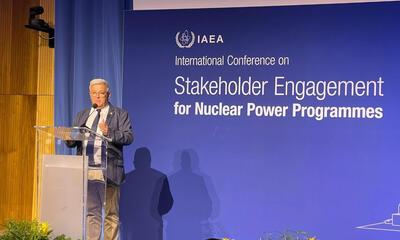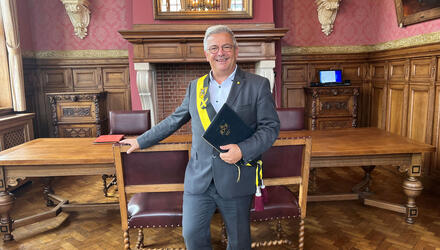
For over seventy years, my municipality, Dessel, has a close bond to the nuclear sector. What began in the 1950s with the arrival of a nuclear research center in the neighboring municipality of Mol, which grew into a unique cluster of nuclear institutions with international prominence: from SCK CEN, FBFC/AREVA, and Belgonucleaire to Belgoprocess. This presence brought jobs, prosperity, and expertise.
When I became alderman in the late 1980s, the debate around nuclear waste was intensely topical. What struck me even then was our community’s willingness to engage in that debate—even when nuclear energy faced pressure. We did not choose a "NIMBY" approach but rather, "Let’s tackle this together."
In the 1990s, as a small municipality, we took the lead in seeking a solution for the disposal of low-level radioactive waste. It was not an easy path. But it was the right one. Because those who benefit from nuclear applications—and we all do, from hospitals to steel construction welding inspections, from electricity supply to cancer treatment—must also dare to share responsibility for waste management.
Together with NIRAS/ONDRAF, we established a local partnership that prioritized transparency and citizen engagement. No technocratic top-down approach, but a process of listening, informing, and involving. To this day, that remains the core of our policy.
Whether you support nuclear energy or oppose it, the reality is: nuclear technology is affordable, efficient, clean, and reliable. It has a future—not just in power plants. And with proper governance, it gains public acceptance.
I am proud that my municipality takes on this responsibility. That we demonstrate how proximity and safety can go hand in hand. And that our citizens don’t look away but actively contribute to the conversation.



